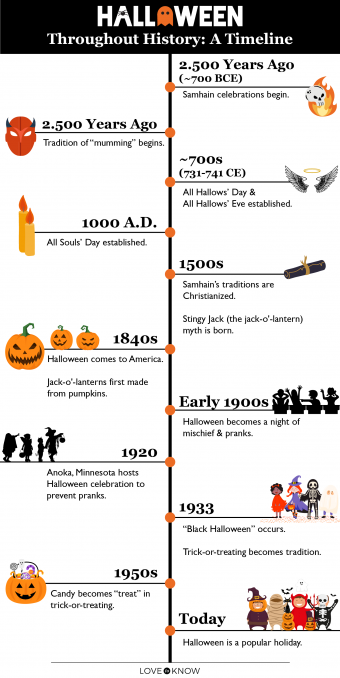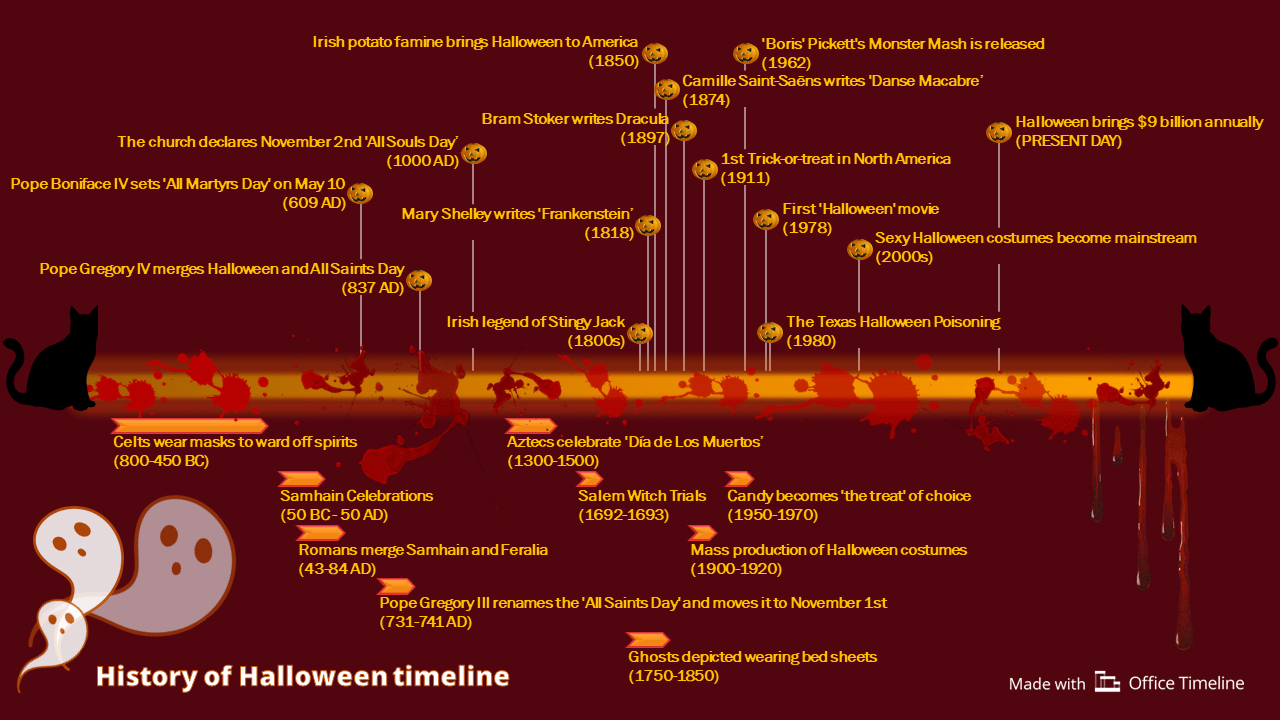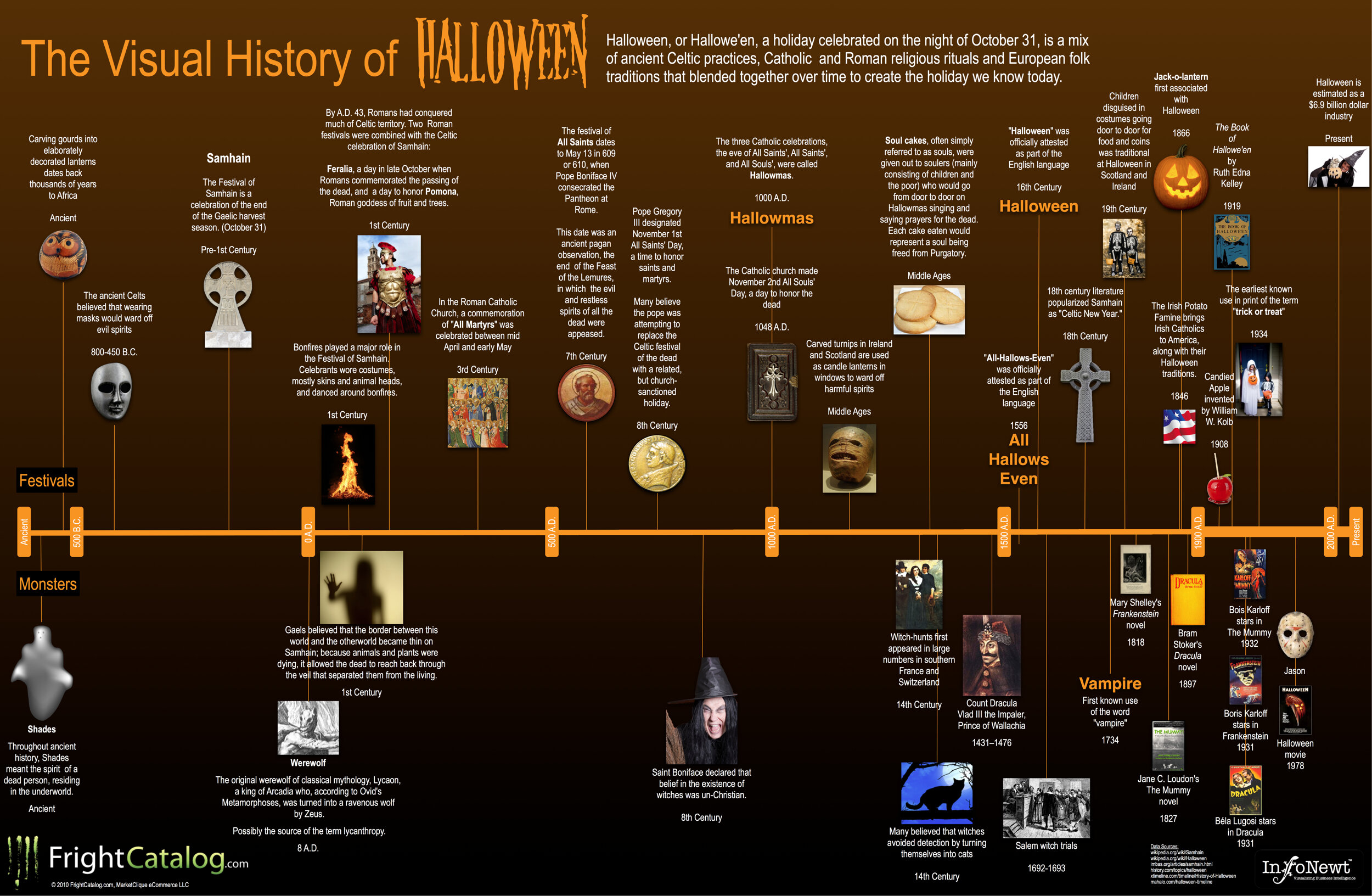Halloween History Timeline 2024: A Journey Through Time and Traditions
Related Articles: Halloween History Timeline 2024: A Journey Through Time and Traditions
- Disney Halloween Theme Park Extravaganza 2024: A Spine-Tingling Adventure
- Halloween History 2024: Exploring The Origins And Traditions Of The Spooky Holiday
- Halloween Disney Villain Makeup: A Spooktacular Guide For 2024
- Halloween Druids: Unraveling The Ancient Origins Of The Spooky Festival
- Disney Halloween Background 2024: A Spooktacular Guide To The Ultimate Halloween Extravaganza
Introduction
With enthusiasm, let’s navigate through the intriguing topic related to Halloween History Timeline 2024: A Journey Through Time and Traditions. Let’s weave interesting information and offer fresh perspectives to the readers.
Table of Content
Video about Halloween History Timeline 2024: A Journey Through Time and Traditions
Halloween History Timeline 2024: A Journey Through Time and Traditions

Halloween, a spooky and enigmatic holiday celebrated annually on October 31st, holds a captivating history that spans centuries and continents. From its humble beginnings in ancient Celtic festivals to its modern-day incarnation as a global celebration, Halloween has evolved significantly over time. This comprehensive timeline traces the key milestones in the history of Halloween, providing a glimpse into the origins and transformations of this beloved holiday.
Circa 600 BCE: Celtic Origins
The roots of Halloween can be traced back to the ancient Celts, a group of tribes who inhabited Europe during the Iron Age. The Celts celebrated a festival known as Samhain, which marked the end of the harvest season and the beginning of the dark, cold winter months.
800 CE: Christian Influence
As Christianity spread throughout Europe, it began to merge with pagan traditions, including Samhain. In the 8th century, Pope Gregory IV designated November 1st as a day to honor all Christian saints, known as All Saints’ Day. This day became closely associated with the pagan festival of Samhain, and the two holidays gradually blended together.
1000 CE: Trick-or-Treating Emerges
The tradition of trick-or-treating, known as "mumming" or "guising," emerged around the 10th century. People would dress up in costumes and go door-to-door, performing songs or plays in exchange for food or money.
1500 CE: Reformation and Witch Hunts
The Protestant Reformation of the 16th century led to a decline in the celebration of All Saints’ Day in some parts of Europe. However, Halloween continued to be celebrated in many rural areas, particularly in Ireland and Scotland. During this time, there was also a rise in witch hunts, and Halloween became associated with witchcraft and supernatural beliefs.
1700 CE: Halloween in the New World
Halloween was brought to the Americas by Irish and Scottish immigrants in the 17th and 18th centuries. The holiday quickly gained popularity in the United States, where it became known as a time for pranks, mischief, and costume parties.
1800 CE: Commercialization of Halloween
In the 19th century, Halloween began to be commercialized, with the introduction of Halloween costumes, decorations, and candy. The holiday became increasingly popular, particularly among children.
1900 CE: Safety Concerns
In the early 20th century, there were growing concerns about the safety of Halloween celebrations. In 1921, a group of school children in California were killed by a car while trick-or-treating. This led to a backlash against Halloween, and in some communities, the holiday was banned or restricted.
1950 CE: Halloween’s Revival
After World War II, Halloween experienced a resurgence in popularity. The holiday became a major commercial event, with the introduction of new Halloween products and attractions.
1970 CE: Modern Halloween
In the 1970s and 1980s, Halloween evolved into the holiday we know today. Horror movies and haunted attractions became popular, and Halloween became a time for people to celebrate all things spooky and supernatural.
2000 CE: Global Expansion
In recent decades, Halloween has spread to countries around the world, becoming a truly global celebration. The holiday has been adapted to different cultures, with unique traditions and customs emerging in each region.
2024 CE: Halloween’s Future
As we approach 2024, Halloween continues to evolve and adapt to the changing times. The holiday is expected to remain a popular and widely celebrated event, with new traditions and technologies emerging to shape its future.
Halloween Today
Today, Halloween is a vibrant and multifaceted holiday that combines ancient traditions with modern-day innovations. People around the world celebrate Halloween in their own unique ways, but the holiday universally represents a time for fun, costumes, candy, and a touch of the supernatural.
From its humble origins in Celtic festivals to its modern-day incarnation as a global celebration, Halloween has undergone a remarkable transformation over the centuries. The holiday has absorbed influences from different cultures and eras, creating a rich and diverse tapestry of traditions and beliefs. As we look ahead to 2024 and beyond, Halloween is poised to continue its evolution, remaining a beloved and enduring holiday for generations to come.








Closure
Thus, we hope this article has provided valuable insights into Halloween History Timeline 2024: A Journey Through Time and Traditions. We hope you find this article informative and beneficial. See you in our next article!